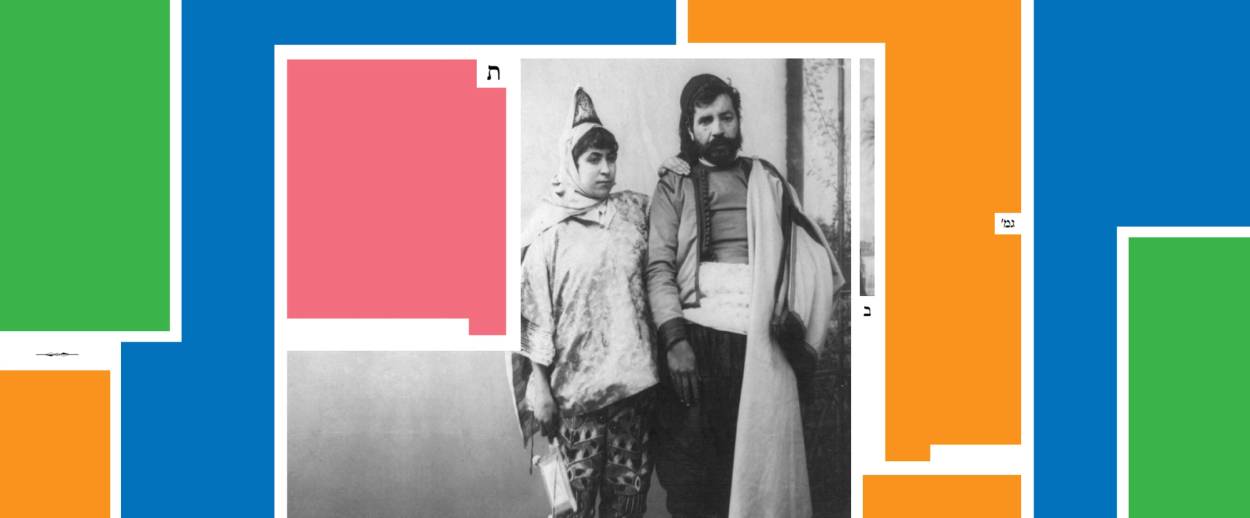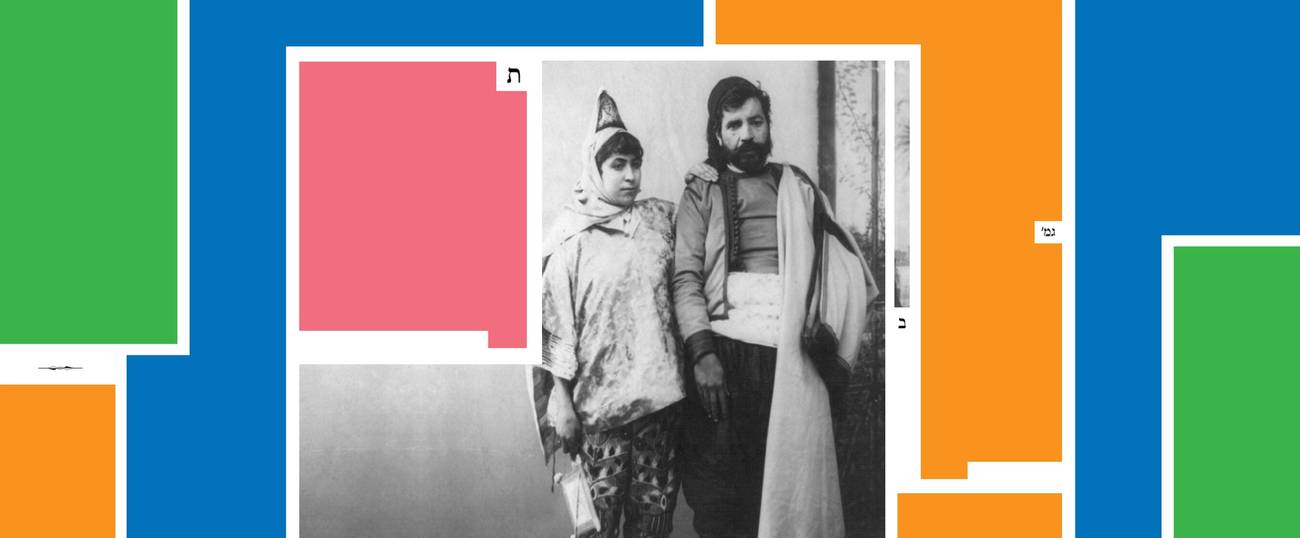The Jewish Legal Basis for Male Dominion Over Vows by Women? It’s in the Bible.
Bridging the abstract simplicity of divine pronouncements to the practical mess of everyday life




Literary critic Adam Kirsch is reading a page of Talmud a day, along with Jews around the world.
This week’s Daf Yomi reading answered a question that I have been wondering about ever since we began reading Tractate Nedarim two months ago: Why is this tractate part of Seder Nashim, the division of the Talmud whose name means “women”? The reason was perfectly clear for the first two tractates in Nashim: Yevamot, which dealt primarily with levirate marriage, and Ketubot, which focused on marriage contracts. Both of those areas of law were directly concerned with the relationships between women and men. But the subject of Nedarim is vows—how to take them and how to dissolve them—and so far there has been nothing obviously gendered about this topic. The assumption governing the Talmudic debates has been that both men and women can and do take vows; so, why is Nedarim part of this section of the Talmud?
Chapter 10 of the tractate, which Daf Yomi readers explored this week, suggests the connection between vow-taking and marriage. It is not, as we might expect, that marriage itself is a vow. Though we speak of “wedding vows” in English, under Jewish law it is clear that marriage is not a vow or oath, but a contract between two parties. Rather, the key point is that husbands have the legal power to annul vows made by their wives. By the same token, fathers have the right to annul the vows of their unmarried daughters, at least until the daughter attains the age of majority, which is 12 and a half. Here is a clear reminder that Jewish women spend most of their lives under the jurisdiction of a man—a feature that Talmudic law shares with virtually all pre-modern legal systems. Only in the brief window between childhood and marriage—which for most women would have lasted at most a few months or years—does a woman have the right to make her own vows without having them reviewed by a man.
The basis for this patriarchal rule is clearly stated in the Torah, in the Book of Numbers: “Every vow, and every binding oath to afflict the soul, her husband may ratify it, or her husband may nullify it.” There is, however, a crucial limitation to this power: The husband (or, for unmarried girls, the father) must nullify the vow on the same day that he hears about it. If he waits longer than a day, the woman’s vow is automatically ratified. This rule restores at least some autonomy to women, whose vows can’t be canceled after they have gone into effect. Still, there is no escaping the point that a woman’s vow—which is a divine promise, a matter between her and God—remains subordinate to the wishes and convenience of her husband. It is easy to understand why men would have approved of this arrangement. As we have seen repeatedly, vows often take the form of refusing to benefit another person, to give them food or clothing, or to enter their house. A wife who made such a vow against her husband would have the potential to upset the entire domestic order.
But in this case, as so often, the rabbis find the simple biblical statement of a law to be inadequate for the needs of a functioning legal system. The Bible, for instance, says that either a father or a husband can dissolve a woman’s vows, depending on whose household she is living in. But under Jewish law, a betrothed girl—one who has agreed to marry a man, but hasn’t yet consummated the marriage—is in a sense under the authority of both her father and her husband at the same time. If a betrothed girl (which means one aged 12 or less) makes a vow, then, who has the power to cancel it, her father or her husband-to-be? The mishna shares the power between them: Both father and husband must agree to cancel the vow, or else it remains in force.
This is only the beginning of the possible complications, however. What if a betrothed girl makes a vow and her father dies before he can either nullify or ratify it? Alternatively, what if the husband dies? As it turns out, the power of the husband and the father is not symmetrical: As the mishna says, “The power of the father is enhanced relative to the power of the husband.” That is because, if the husband dies, the father has the power to cancel or ratify his daughter’s vow on his own; but if the father dies, the husband does not have that power, so he must allow his bride-to-be’s vows to stand. Then there is the question of divorce: What if a betrothed girl makes a vow, and then the betrothal is called off and she is betrothed to a different man? Which husband has the power to nullify her vow, the one who was betrothed to her when she made the vow or the one she is betrothed to at present? The mishna’s answer is that the right of the “final husband” prevails. To underscore the point, the rabbis use hyperbole: Even if she were betrothed to “one hundred men” on the same day, the last man in the series is the one who can cancel her vow.
A woman’s vow—which is a divine promise, a matter between her and God—remains subordinate to the wishes and convenience of her husband.
This raises one of those hypothetical questions the rabbis are so fond of, which imagine a rare or impossible situation in order to test the limits of a legal principle. Say a man hears his wife’s vow and then divorces her without explicitly nullifying it; and then, later the same day, he remarries her again. Can he still cancel the vow? The answer depends on whether you consider his silence before the first divorce to be a form of agreement. After all, since he heard the vow and didn’t nullify it, you could argue that he allowed it to go into effect; in that case, once he remarries her, the vow is already valid and it would be too late to cancel it. On the other hand, you could argue that since he didn’t explicitly affirm the vow, only remained silent about it, he hasn’t yet rendered it effective or ineffective; and after he remarries the woman, he can make up his mind about it then. After turning this problem over a few times, the Gemara comes to no final conclusion.
Another issue raised by the biblical law is much more basic. Back in Tractate Yevamot, we learned about the ceremony of chalitza, in which a woman can release her brother-in-law from his levirate obligation by removing the shoe from his foot. There, the rabbis wondered what to do if the man had no feet, or the woman had no hands: How could they perform the ritual if they were physically incapable of doing so? (Pragmatically, the rabbis devised a workaround, in which the shoe could be attached to a prosthetic foot and the woman could use her teeth to untie it.) Now a similar problem arises with regard to the biblical instruction that a husband can dissolve his wife’s vow only on the day he hears it. But what if he can’t actually hear it at all, because he is deaf? For some reason, the rabbis choose not to suggest a pragmatic solution in this case—for instance, having someone write down the vow for the deaf husband to read. Instead, they remain strictly literal: A deaf man can never annul his wife’s vows, because he can never be said to actually hear them.
The rabbis go on to consider other technicalities. The Bible says that a husband must state his nullification within a day of hearing about his wife’s vow. But does this mean the same day until sunset, or a full 24-hour period? Can a husband nullify his wife’s vows in advance, with a blanket statement, or does he have to wait until they are actually made? What specific words must be used to nullify or ratify a vow? Can you cancel a vow with actions alone—for instance, if your wife vows not to drink wine, and you offer her a cup of wine, is this an implicit cancellation of her vow? Issues like these may sound trivial, but they are exactly the sort of problems that the law thrives on, since they bridge the abstract simplicity of the Bible with the complexities of everyday life.
***
Adam Kirsch’s Daf Yomi column will return September 1. To read Tablet’s complete archive of Talmud study, click here.
Adam Kirsch is a poet and literary critic, whose books include The People and the Books: 18 Classics of Jewish Literature.